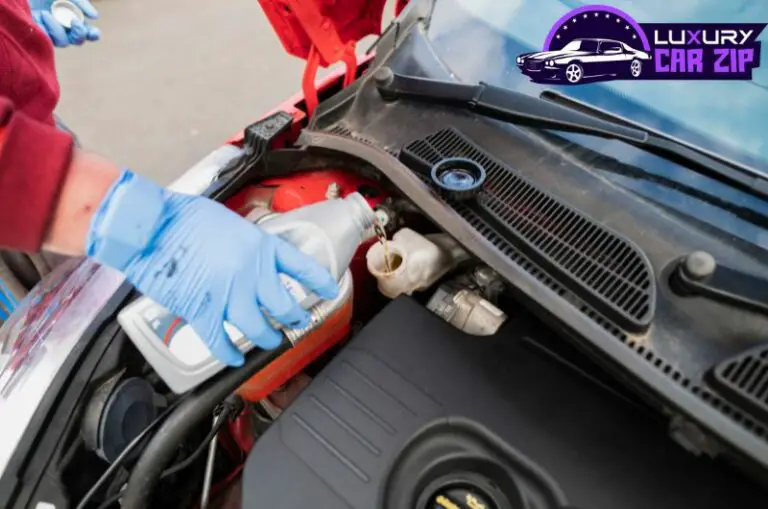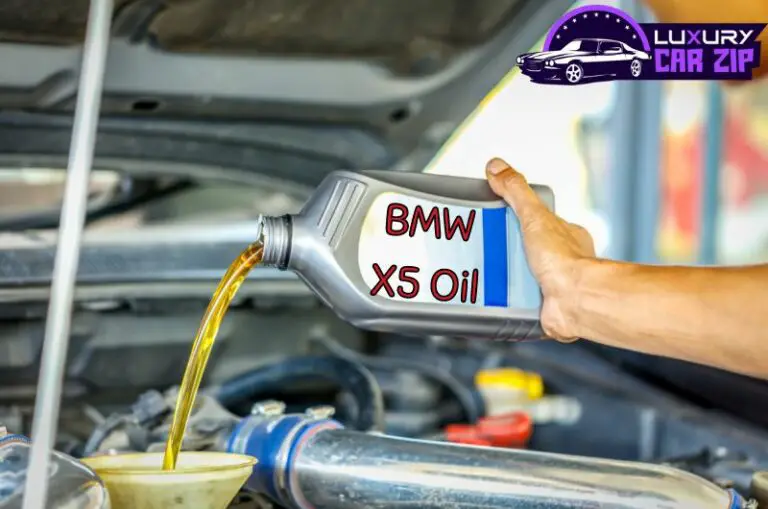How To Troubleshoot BMW E39 Excessive Fuel Consumption?
The BMW E39 is a fantastic car that has been popular among drivers for a long time. The engine is top-notch and durable in critical situations. But the engine burns more fuel with time. Hence, it increases fuel consumption and cost. But what’re the reasons for the excessive fuel consumption of a BMW E39?
A faulty engine, clogged air filter, defective O-ring, and cheap engine oil are the prime culprit behind excess fuel consumption in an E39. Additional reasons like using bad-quality fuel, not changing the tire, running the AC frequently, and poor vehicle maintenance are also responsible for high fuel consumption.
Some of these issues are elementary to fix, while some need an expert’s attention. If you don’t know how to reduce fuel usage, hop in to discover the simple remedies.
Contents
What Causes E39’s Excessive Fuel Consumption & Their Fixes?
The BMW brand isn’t as exceptional as other vehicles except for its durability and quality of services. You may think the BMW E39 showcases otherworldly fuel consumption problems.
Most BMWs exhibit almost the same issue regarding fuel consumption, and the E39 falls in the same category. Here’re the reasons and possible remedies to solve the excessive fuel issue.
Read Also: Why BMW Check Engine Light On But No Message On Dash?
Engine Problems
Engine problems are the most crucial ones responsible for excess fuel consumption. As you know, an E39 engine is quite reliable, but its performance decreases with time. Finally, resulting in high fuel consumption.
You must scan the engine to confirm the exact reason. Otherwise, it’s tough to fix the excess oil consumption issue. You can also contact an expert mechanic to solve the problem.
Cheap Engine Oil
If you’re using cheap engine oil in your E39 for a long time, fuel consumption will rise. Engine oils are graded in several classes. The piston can’t move more smoothly when you use thick engine oil than the recommended one.
Consequently, your vehicle requires more fuel to move freely. Sometimes insufficient engine oil is also responsible for excess fuel consumption.
The only solution to this problem is to replace the engine oil. You should read the owner’s manual to understand your E39’s engine properly. Use engine oil that suits your E39’s engine.
Using Bad Quality Fuel
Do you think using low-quality fuel will save you some money? Well, it’ll only increase your bill. Burning cheap fuel creates more pollutants that can affect your E39’s engine performance.
Many fuel manufacturers use cheap additives to optimize the production price. But in the long run, the engine consumes more fuel than before.
Before you encounter fuel consumption problems due to fuel, you should change the oil ASAP. Your E39’s engine’s performance will increase significantly with better fuel.
Read Also: What Causes A BMW 530i Red Brake Light On?[With Solutions]
A Running Air Conditioner
Your E39’s engine plays a vital role in keeping your car’s AC running. But if you use the AC unnecessarily, the engine requires more fuel to keep the AC and the machine on. As a result, you’ll notice low fuel mileage. Sometimes, it also affects overall engine performance.
It would be best to keep your car’s windows open while driving at a low speed to reduce AC usage. Don’t bother to turn on the AC when you’re driving at high speed. It’ll keep the engine running and the load off the machine.
Using Old Tires
When you use older tires in your BMW E39, it fails to grip more and spin properly. So, your engine needs more fuel to keep the wheels running. Inadequate tire pressure is another reason behind excessive fuel consumption.
Installing new tires once you notice low fuel mileage is an ideal solution. You should check your BMW tire pressure before driving to avoid unnecessary fuel loss.
Putting The Car On The Wrong Gear
If you’re driving your E39 in low gear, it’ll consume more fuel than before. Don’t think driving the car in high gear will cost less fuel. You should know which gear to follow depending on the situation.
Try to drive your E39 at the optimum gear to avoid extra fuel consumption. If you still can’t detect the right gear, you should return to the driving school!
Read Also: Why BMW X5 Lights Won’t Turn Off & How To Reset It?
No Maintenance
Not performing regular maintenance affects not only fuel usage but also affects the whole vehicle’s performance. Not cleaning the engine correctly means more jammed oil lines, resulting in more fuel consumption.
You must do regular maintenance to keep all the engine parts shiny. Otherwise, get ready to pay the extra money for fuel.
Damaged Clutch
A damaged clutch often fails to keep up the pace. The plates can’t rotate smoothly and tend to slip often. Consequently, the wheels don’t get enough power to move forward. It also decreases the mileage significantly.
You should insert a new clutch to decrease fuel consumption. However, a new clutch will decay with time but won’t affect fuel consumption immediately.
Unusual Idling
Engine idling is another prime reason for the excess fuel consumption of an E39. Keeping the engine on a traffic signal is a terrible way of losing fuel. Y
ou can turn off the engine since restarting the engine requires less fuel than keeping the machine on.
Jammed Air Filter
A clogged air filter fails to circulate the air when the engine runs. To create more pressure and enhance performance, the engine requires more fuel. The situation gets even worse with a greasy air filter.
You can clear the dirt around the air filter if you’ve enough experience. It’s wise to install a new air filter to solve the problem once and for all.
Read Also: How To Check The BMW E38 Battery Is Recharging or Not?
Frequently Asked Questions
It’s tough to cover all the issues about the E39’s excess fuel consumption. You might’ve many doubts about the engine’s performance and fuel economy. Look at these short answers to clear your doubts.
Does A Bad Oxygen Sensor Affect The E39’S Performance?
A faulty oxygen sensor is bad news for any vehicle. It would help if you changed the O-ring to avoid future issues. Otherwise, it’ll increase fuel consumption and affect the whole engine’s performance.
Do Bad Driving Habits Affect Fuel Consumption?
Bad driving habits have a severe impact on fuel consumption. If you use your e39 for drag racing and showboating, it’ll increase fuel consumption. Don’t forget the tires wear off faster when you follow harmful driving methods.
Should I Replace My E39’S O-Ring?
You should replace your E39’s O-ring if it isn’t doing its job. The O-ring is an intricate part of the E39. So, when it goes wrong, replace it with a new one instantly. If you can’t change the O-ring, take the vehicle to a repair shop.
When Should I Change The E39’S Engine Oil?
It would be best to determine the oil level before changing it. Use a stick to detect the oil level. If you’ve been using the same oil for a long time, think of changing it immediately. Remember to use better-quality engine oil for optimum performance.
Final Words
Consuming excess fuel is a bad sign for you and your BMW E39. If you don’t take care of the situation early, it’ll complicate the issue. Hence, it affects various engine parts.
We hope the discussion on the BMW E39’s excessive fuel consumption has provided you with the causes and solutions. You must identify the reason before you solve the issue.
You might discover a new reason behind this issue. Then, you must contact a mechanic to fix the fuel-consumption problem quickly.


![Top 04 Best Tires For BMW X5 [Revealed!]](https://luxurycarzip.com/wp-content/uploads/2023/10/Best-Tires-For-BMW-X5.jpg)
